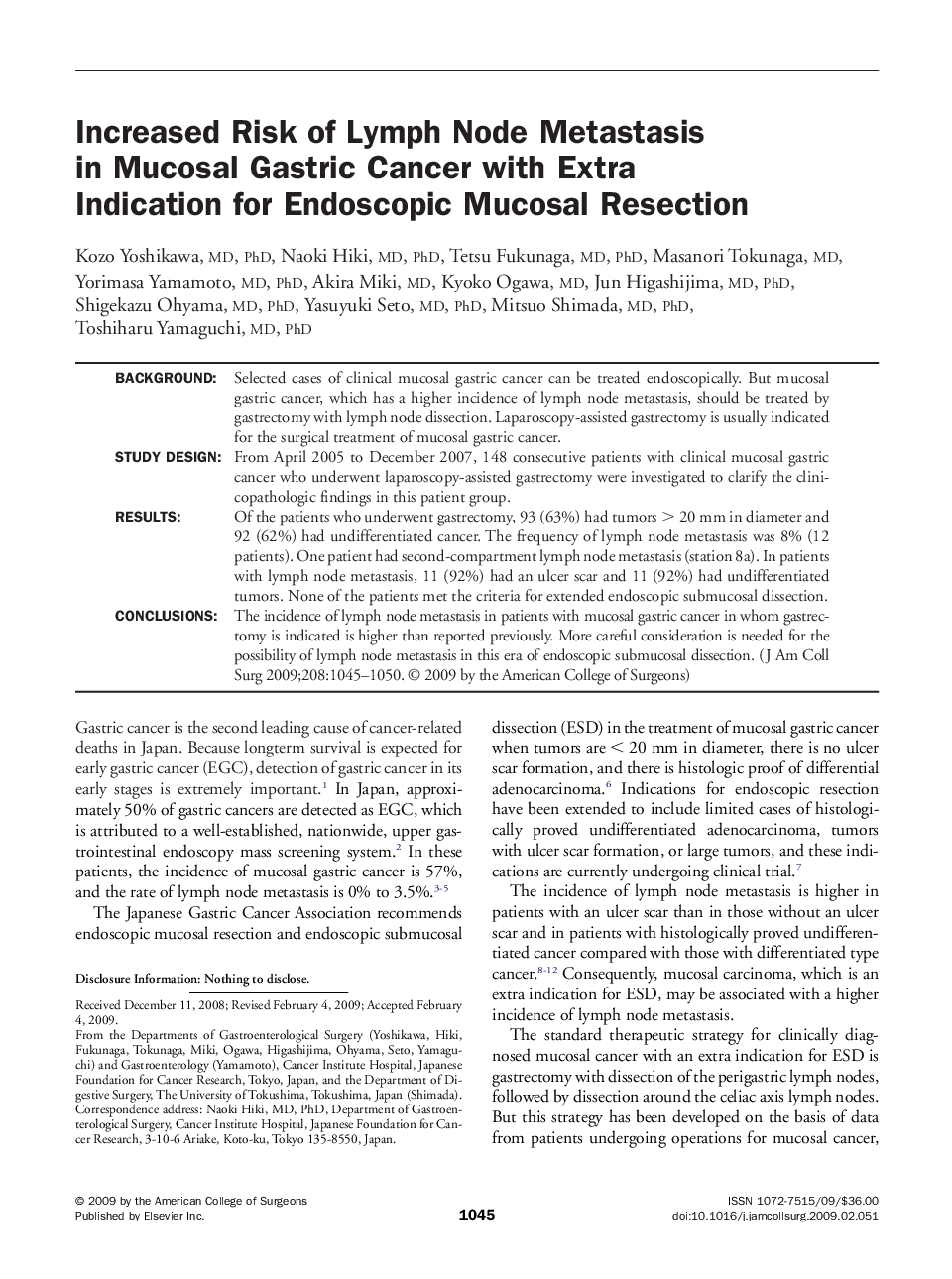| Article ID | Journal | Published Year | Pages | File Type |
|---|---|---|---|---|
| 4295357 | Journal of the American College of Surgeons | 2009 | 6 Pages |
BackgroundSelected cases of clinical mucosal gastric cancer can be treated endoscopically. But mucosal gastric cancer, which has a higher incidence of lymph node metastasis, should be treated by gastrectomy with lymph node dissection. Laparoscopy-assisted gastrectomy is usually indicated for the surgical treatment of mucosal gastric cancer.Study DesignFrom April 2005 to December 2007, 148 consecutive patients with clinical mucosal gastric cancer who underwent laparoscopy-assisted gastrectomy were investigated to clarify the clinicopathologic findings in this patient group.ResultsOf the patients who underwent gastrectomy, 93 (63%) had tumors > 20 mm in diameter and 92 (62%) had undifferentiated cancer. The frequency of lymph node metastasis was 8% (12 patients). One patient had second-compartment lymph node metastasis (station 8a). In patients with lymph node metastasis, 11 (92%) had an ulcer scar and 11 (92%) had undifferentiated tumors. None of the patients met the criteria for extended endoscopic submucosal dissection.ConclusionsThe incidence of lymph node metastasis in patients with mucosal gastric cancer in whom gastrectomy is indicated is higher than reported previously. More careful consideration is needed for the possibility of lymph node metastasis in this era of endoscopic submucosal dissection.
